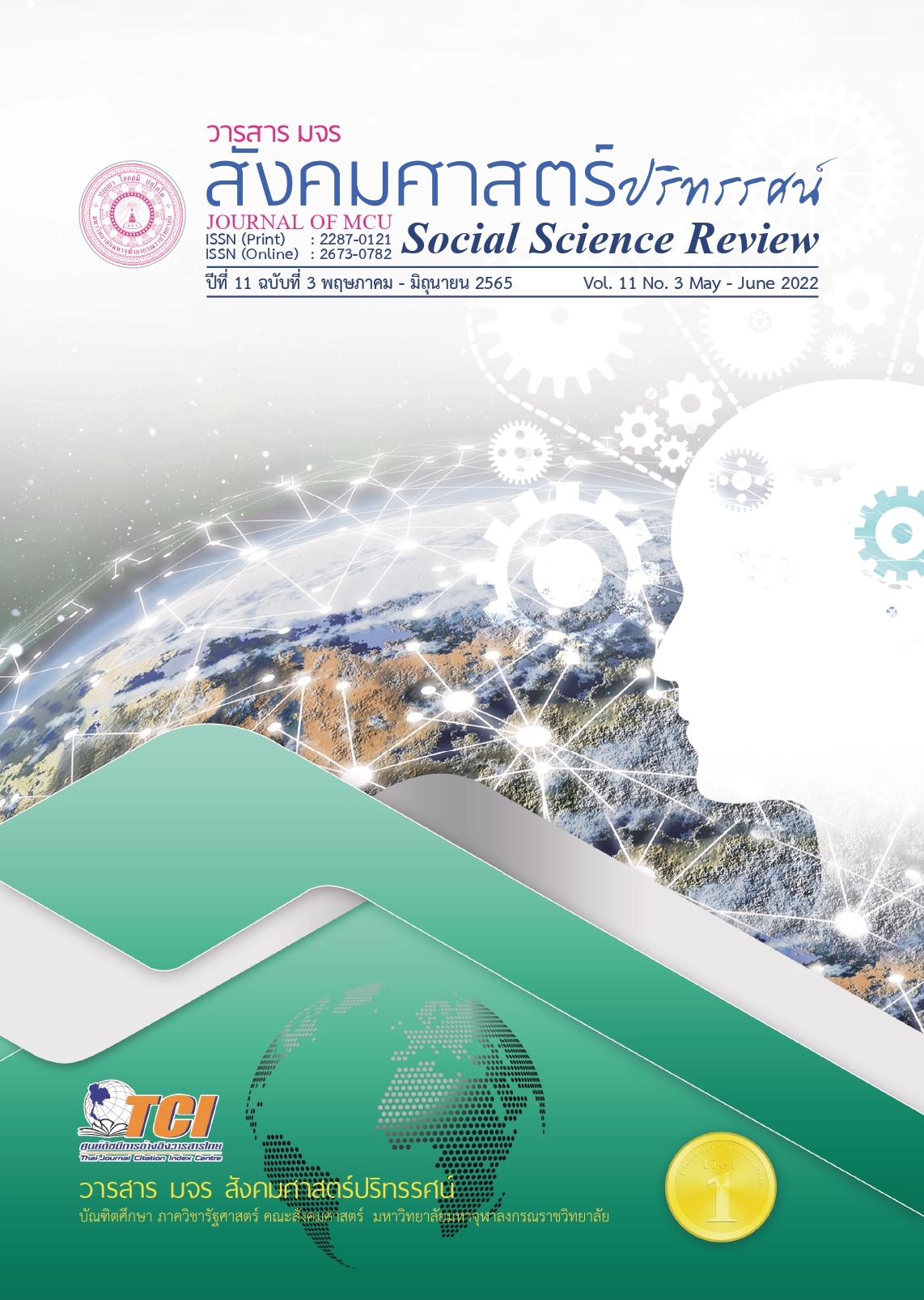การขยายผลข้อเสนอเพื่อการปฏิรูประบบการผลิตและพัฒนาครูปฐมวัย ผู้ดูแลเด็กและครูผู้ช่วย : พื้นที่นวัตกรรมการศึกษาจังหวัดเชียงใหม่
คำสำคัญ:
สมรรถนะสำคัญของครูปฐมวัย, การปฏิรูประบบการผลิตและพัฒนาครูปฐมวัย, พื้นที่นวัตกรรมการศึกษาบทคัดย่อ
คณะศึกษาศาสตร์ มหาวิทยาลัยเชียงใหม่เป็นหนึ่งในสามมหาวิทยาลัยที่ได้รับการคัดเลือกจากกองทุนเพื่อความเสมอภาคทางการศึกษาให้เป็นสถาบันในการจัดทำพัฒนาข้อเสนอในการปฏิรูประบบการผลิตและพัฒนาครูปฐมวัย ผู้ดูแลเด็ก และครูผู้ช่วยในปีงบประมาณ 2562 การวิจัยนี้มี 5 ระยะโดยทำการวิเคราะห์ข้อมูลเชิงปริมาณด้วยสถิติบรรยายพื้นฐานและวิเคราะห์ข้อมูลเชิงคุณภาพด้วยวิธีการวิเคราะห์เนื้อหาและพรรณนาความ
ผลการวิจัยพบว่า 1) กลุ่มเป้าหมายส่วนใหญ่มีประสบการณ์สอนต่ำกว่า 5 ปีและเกินครึ่งมีใบประกอบวิชาชีพครู 2) ผลการสร้างหลักสูตรการพัฒนาสมรรถนะสำคัญที่ส่งผลต่อการพัฒนานวัตกรรมทางความคิดของเด็กปฐมวัย สำหรับครูและผู้ดูแลเด็กในพื้นที่นวัตกรรมการศึกษาจังหวัดเชียงใหม่พบว่าองค์ประกอบหลักของหลักสูตรมี 6 โมดูลโดยเป็นหลักสูตรที่มีคุณภาพมีผลการประเมินคุณภาพโดยรวมอยู่ในระดับมากที่สุด 3) ผลการใช้หลักสูตรพบว่าหลักสูตรที่สร้างขึ้นมีดัชนีประสิทธิผลโดยรวมสูงกว่า .50 4) ผลการสร้างรูปแบบการบริหารจัดการทางวิชาการในการสนับสนุนการพัฒนาสมรรถนะครูมีหลักการดำเนินการ 4 ระยะคือระยะที่ 1 เติมเต็มผ่านการลงมือปฏิบัติจริงระยะที่ 2 ปฏิบัติจริงและสร้างชุมชนแห่งการเรียนรู้ ระยะที่ 3 แนะนำชี้แนะอย่างเป็นพิเศษและระยะที่ 4 สะท้อนความคิดเพื่อนำไปสู่ผลผลิตและข้อมูลป้อนกลับ 5) ผลการใช้รูปแบบการบริหารจัดการทางวิชาการ พบว่าภาพรวมสามารถทำให้ครูมีผลการพัฒนาสมรรถนะดีขึ้นและเป็นไปตามเกณฑ์
เอกสารอ้างอิง
Chulakorn Masatienwong. (2006). Future-oriented educational policies and strategiesfor Thai youths. Chulalongkorn University: Bangkok
Equitable Education Fund. (2018). Positive Thinking: The seed of Prosperity. National Education Council: Bangkok. Equitable Education Fund
Kantawan Meesomsarn. (2017). Models of Early Childhood Teacher Development in the 21st Century. Valaya Alongkorn Review. 7(2), 45-56.
Keung, C. P. C., et al. (2020). Kindergarten teachers’ perceptions of whole-child development: The roles of leadership practices and professional learning communities. Educational Management Administration & Leadership, 48(5), 875–892.
Kiatsuda Srisuk et al. (2020). A Development of Early Childhood Teachers, Child Care Providers, and Assistant Teachers Indicators. (Research Report). Chiang Mai: Faculty of Education, Chiang Mai University.
Napanet Thammaboworn. (1999). Evaluation of Early Childhood Development. Nakhon Pathom: Nakhon Pathom Rajabhat Institute.
OECD. (2019). The OECD Teaching and Learning International Survey (TALIS) and teacher education for diversity.
Pachoen Kidrakarn. (2003). Effectiveness Index. Faculty of Education. Mahasarakham University: Mahasarakham.
Pasin Taengchuang. (2011). Model of Competency Development of Educational Personnel. Bangkok: Duangkamon Publishing.
Polly, D. et al. Designing Curriculum-Based Mathematics Professional Development for Kindergarten Teachers. Early Childhood Educ J 45, 659–669 (2017). https://doi.org/10.1007/s10643-016-0810-1
Saroj Buasri. (2001). Moral, Ethics and Professional Code of Conduct. Bangkok: Yellow
Siripat Jesadawiroj. (2007). Development of an Integrated Curriculum for Primary School Students. Bangkok: Printing House of Chulalongkorn University
Warali Kosai, et al.. (2018). Early Childhood Teacher Development Model Using STEM Education Experience Promote Early Childhood Learning Skills in the 21st Century. Academic Journal of Buriram Rajabhat University. Department of Humanities and Social Sciences. 10(2), 123-142.
ดาวน์โหลด
เผยแพร่แล้ว
รูปแบบการอ้างอิง
ฉบับ
ประเภทบทความ
สัญญาอนุญาต
ลิขสิทธิ์ (c) 2022 วารสาร มจร สังคมศาสตร์ปริทรรศน์

อนุญาตภายใต้เงื่อนไข Creative Commons Attribution-NonCommercial-NoDerivatives 4.0 International License.
เพื่อให้เป็นไปตามกฎหมายลิขสิทธิ์ ผู้นิพนธ์ทุกท่านต้องลงลายมือชื่อในแบบฟอร์มใบมอบลิขสิทธิ์บทความให้แก่วารสารฯ พร้อมกับบทความต้นฉบับที่ได้แก้ไขครั้งสุดท้าย นอกจากนี้ ผู้นิพนธ์ทุกท่านต้องยืนยันว่าบทความต้นฉบับที่ส่งมาตีพิมพ์นั้น ได้ส่งมาตีพิมพ์เฉพาะในวารสาร มจร สังคมศาสตร์ปริทรรศน์ เพียงแห่งเดียวเท่านั้น หากมีการใช้ภาพหรือตารางหรือเนื้อหาอื่นๆ ของผู้นิพนธ์อื่นที่ปรากฏในสิ่งตีพิมพ์อื่นมาแล้ว ผู้นิพนธ์ต้องขออนุญาตเจ้าของลิขสิทธิ์ก่อน พร้อมทั้งแสดงหนังสือที่ได้รับการยินยอมต่อบรรณาธิการ ก่อนที่บทความจะได้รับการตีพิมพ์ หากไม่เป็นไปตามข้อกำหนดเบื้องต้น ทางวารสารจะถอดบทความของท่านออกโดยไม่มีข้อยกเว้นใดๆ ทั้งสิ้น





